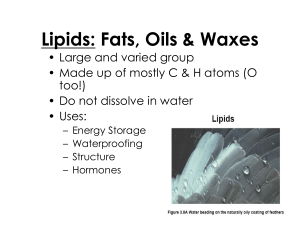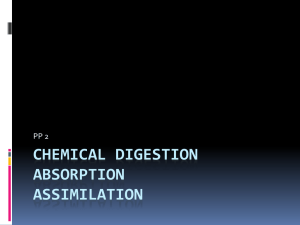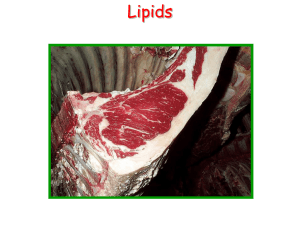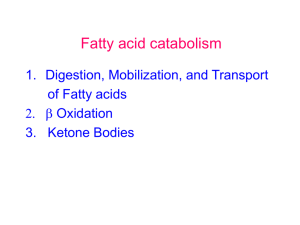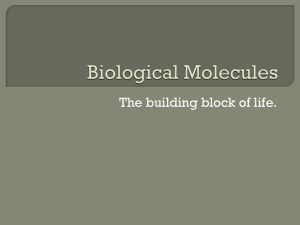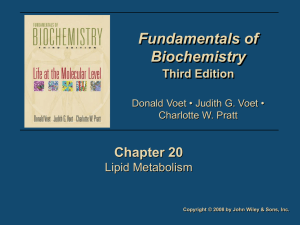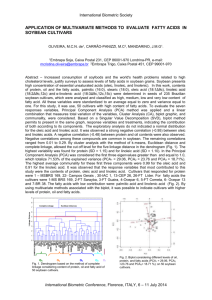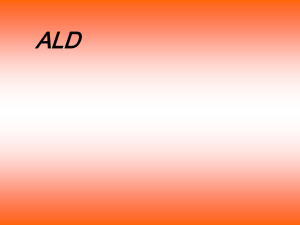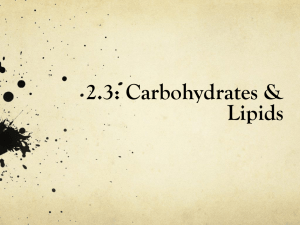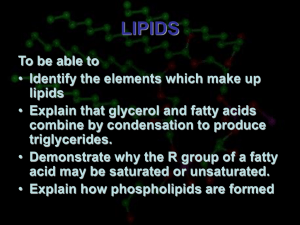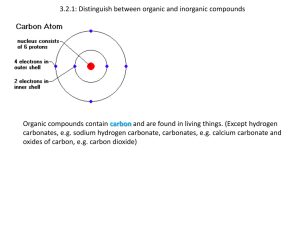4. Essential fatty acid
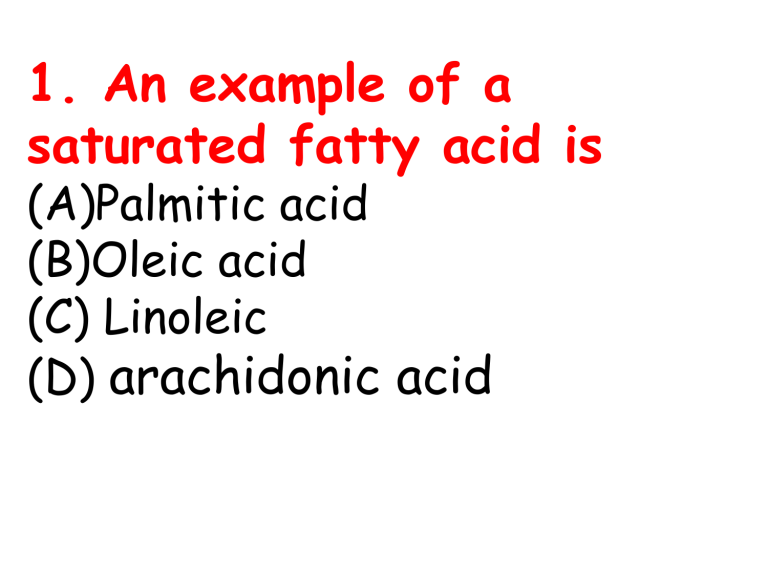
1. An example of a saturated fatty acid is
(A)Palmitic acid
(B)Oleic acid
(C) Linoleic
(D) arachidonic acid
2. If the fatty acid is esterified with an alcohol of high molecular weight (long chain) instead of glycerol, the resulting compound is
(A) Lipositol
(B)B) Plasmalogen
(C) Wax
(D) Cephalin
3-A fatty acid which is not synthesized in the body and has to be supplied in the diet is
(A)Palmitic acid
(B) stearic acid
(C) Linolenic acid
(D) Butyric acid
4. Essential fatty acid:
(A)Linoleic acid
(B) Linolenic acid
(C) Arachidonic acid
(D) All these
5. The number of double bonds in arachidonic acid is
(A) 1
(B) 2
(C) 4
(D) 6
6. In humans, a dietary essential fatty acid is
(A)Palmitic acid
(B) Stearic acid
(C) Oleic acid
(D) Linoleic acid
7. A lipid containing an amino alcohol is
(A) Phosphatidic acid
(B) Lecithin
(C) cardiolipin
D) Sphingomyelin
8. Cephalin consists of all the following except
(A) Glycerol, fatty acids, phosphoric acid and choline
(B) Glycerol, fatty acids, phosphoric acid and ethanolamine
(C) Glycerol, fatty acids, phosphoric acid and inositol
(D) Glycerol, fatty acids, phosphoric acid and serine
9. In mammals, the major fat in adipose tissues is
(A)Phospholipid
(B) Cholesterol
(C) Sphingolipids
(D) Triacylglycerol
10. Glycosphingolipids are a combination of
(A) Ceramide with one or more sugar residues
(B) Glycerol with galactose
(C) Sphingosine with galactose
(D) Sphingosine with phosphoric acid
11. Phospholipid acting as lung surfactant is
(A)Cephalin
(B) Phosphatidyl inositol
(C) Lecithin
(D) Phosphatidyl serine
12. Dietary fats after absorption appear in the circulation as
(A)HDL
(B) VLDL
(C) LDL
(D) Chylomicron
13. Free fatty acids are transported in the blood
(A) Combined with albumin
(B) Combined with fatty acid binding protein
(C) Combined with β -lipoprotein
(D) In unbound free salts
14. Triglycerides are transported from liver to extrahepatic tissues by
(A)Chylomicrons
(B) VLDL
(C) HDL
(D) LDL
15. Cholesterol is transported from liver to extrahepatic tissues by
(A)Chylomicrons
(B) VLDL
(C) HDL
(D) LDL
16. Elevated plasma level of the following protects against atherosclerosis:
(A)Chylomicrons
(B) VLDL
(C) HDL
(D) LDL
17. Which of the following can be synthesized in the human body if precursors are available?
(A)Oleic acid
(B) linoleic acid
(C) Arachidonic acid
(D) All of these
18. In glycerophospholipids, a polyunsaturated fatty acid is commonly attached to which of the following carbon atom of glycerol?
(A) Carbon 1
(B) Carbon 2
(C) Both (A) and (B)
(D) None of these
19. Lysolecithin is formed from lecithin by removal of
(A) Fatty acid from position 1
(B) Fatty acid from position 2
(C) Phosphorylcholine
(D) Choline
20. A digestive secretion that does not contain any digestive enzyme is
(A)Saliva
(B) Gastric juice
(C) Pancreatic juice
(D) Bile
21. Plasma becomes milky
( A) Due to high level of HDL
(B) Due to high level of LDL
(C) During fasting
(D) After a meal
•
22. Cholesterol is the precursor for the biosynthesis of
• (A) essential fatty acids
• (B) prostaglandins
• (C) bile acids
• (D) sphingmyelin
23. Cerebrosides are composed of
(A)Sphingosine, fatty acids, glycerol and phosphoric acid
(B) Sphingosine, fatty acids, galactose
(C) Glycerol, fatty acids, galactose
(D) Glycerol, fatty acids, galactose, sphingol
24. The class of lipoproteins having a beneficial effect in atherosclerosis is
(A) Low density of lipoproteins
(B) very low density lipoproteins
(C) High density lipoproteins
(D) Chylomicrons
25. A fatty acid not synthesized in man is
(A) Oleic
(B) Palmitic
(C) Linoleic
(D) Stearic
26- These chemical substances contain : a- a long hydrocarbon chain b- a steroid nucleus c- a pentose sugar d- a benzene ring
1. What are the deficiency symptoms of:
Vit. A
Vit. E
Vit. K
Vit. D
2-What is the physiological importance of Calcium ?
3-What is the physiological importance of vitamin D?
4. What are the antioxidant vitamins
5- What are the types and functions of adrenocortical hormones?
6-Enumerate 4 types of phospholipids enter in structure of cell membranes
